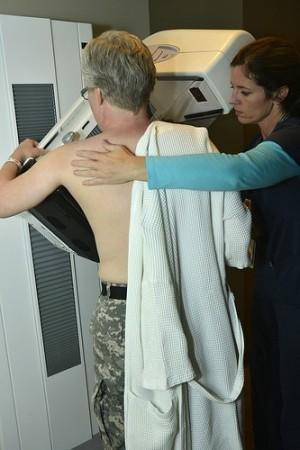
A new study has found that Mammography cannot help in reducing breast cancer-related deaths among middle aged women.
The screening tehnique has long been widely used across the world to detect breast cancer in women. Doctors recommend women aged between 40 and 70 to undergo this procedure every year, to help detect the deadly disease early and to manage adverse health outcomes associated with it, better. However, the method was also a source of concern and a topic of controversy as the results provided by mammography sometimes turned out to be false, leading to over- diagnosis, overtreatment and unnecessary exposure to radiation.
"The majority of breast cancers are detectable by mammography, but whether or not this is beneficial has now become very controversial," study researcher Dr Miller, told Live Science.
Providing more evidence, a team of Canadian researchers found that the diagnostic tool cannot help in saving lives, Live Science reported. The study looked at 90,000 women aged between 40 and 59.
Of the total women, half reported taking mammography and breast examinations every year, while the second group took only the physical breast examinations. Rates of women diagnosed with breast cancer (3,250 and 3,133 respectively) and deaths (500 and 505 respectively) from the disease in the following 20 years were almost similar in both the groups.
Results showed that, a significant number of breast cancer tumours detected using this method was wrong. Researchers found that 22 percent of the women (424) in the study who used mammography were falsely diagnosed with the disease. They said that the women would have lived more if the tumours remained undiagnosed.
Dr. Anthony Miller from the University of Toronto and colleagues also found that mammography was of little help in lowering mortality rates over a period of 25 years, irrespective of the fact whether they used the screening tool to detected the disease.
Researchers said that cure of breast cancer fully depends up on the type of breast cancer, and not on screening methods. "If you're able to cure cancers by treatment, no matter what stage they're at, there isn't any role for screening. So as the treatment improves, the contribution of screening gets less and less," Dr Miller, added later.
The study has been published in the British Medical Journal (BMJ).








